Hiking is one kind of adventure to walk a long way in a natural environment that has a combo pack of physical and mental benefits. Hiking is a source of recreation, decreases mental stress, is a test for fitness, and so on. As a beginner, there is no reason to fear it. No special training or technique is required for it. You just need a small planning and a little preparation to make successful hiking. Here we make experience base hiking tips for beginners that help you to give the actual feel of hiking. The following hiking tips should be kept in your mind to make your first journey successful.
11 Hiking Tips For Beginners
As a beginner, what matters you should consider and what things you need to understand for a pure hiking journey are listed below.
1. Select Your Hiking Partner
As a beginner, this is obviously not a wise decision to go alone hiking. There are some bad factors when you will go alone. First, safety is a more important factor here. You badly feel the help of a person if you fall into any type of danger. Second, it is always boring if you can’t talk to someone or can’t share your feeling while walking especially on such hiking trails. So, first of all, you should decide on your partner. That can be your close friends or your family or any hiking community or any experienced person. It’s totally up to you by whose you will stay comfortable.
2. Find A Perfect Trail
You should give proper attention to finding a perfect trail for hiking. Any mistake at this step can ruin all of your plans. You can take help from the trail guide. The following matters you should concern to select a hiking trail.
- A short distance from your place
- Natural view
- Not so long to climb
- Your fitness condition
- Month
- The weather on the trail
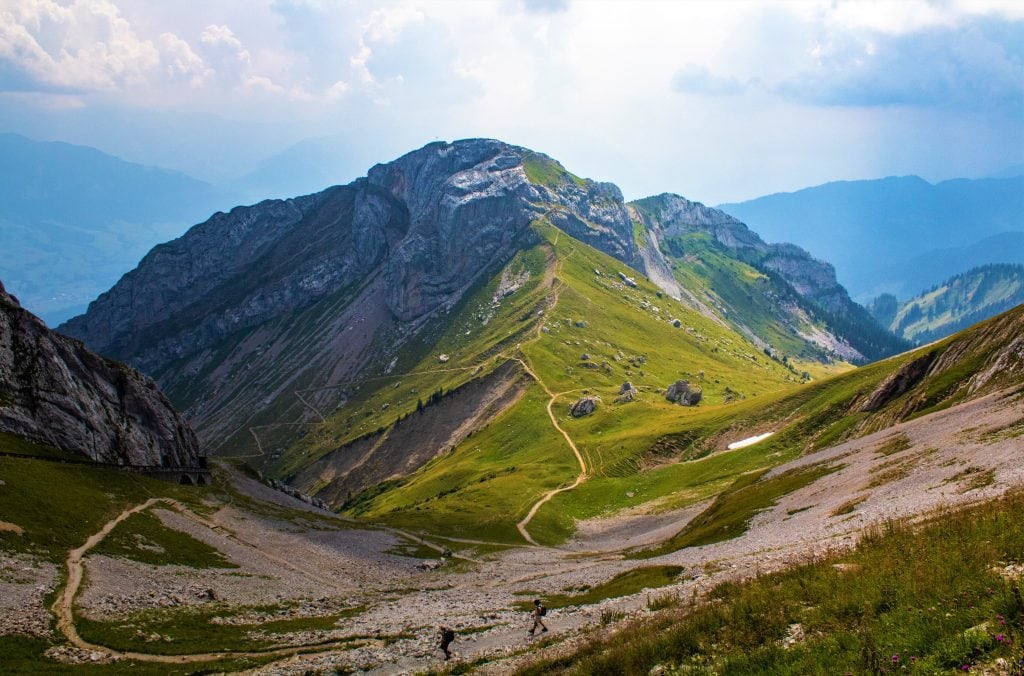
By taking those in mind you can fix where you will go. You can talk to your friends or any hiking organization about selecting your hiking place. Also, you can research on the internet about trail-guide. This can be helpful for you.
3. Checkout Before The Journey
You should check out the weather before starting. Depending on the weather you should take your decision. Weather also indicates what types of dress you should wear or what extra gear you need that favors the weather. If the weather is totally against your desired place then it is better not to go.

Again, it is also needed to check your fitness on that day. Physical and mental pleasure is the best thing. So you should need proper sleep, food, and drinking water before the morning.
4. Favourable Dress
A favorable dress is confirmed to be a pleasure hiking. So you should aware of your dresses. You can follow these tips to cope with the hiking trails.
- Try to avoid cotton
- Jeans also are forbidden
- Wear a long sleeve shirt
- Comfortable pants to easily move
- T-shirt in warm weather
- Jacket in cold weather
- Rainy jacket(if rain)
- A hat

You need to stay dry during hiking. For this, you should try to avoid cotton. The way of trail is not straight. So you should notice about your dress that you can walk freely.
5. Be Aware Of Shoes And Socks
Yeah, shoes are also considered an important factor for hiking. A pair of good shoes can give relaxation in your hiking journey. As a beginner, you must have hiking shoes. There are facts about men’s and women’s hiking boots. Check the point below.
- Use light-weight shoes
- Not so much tight
- Use boot in rainy conditions
- It also, use in heavy gases and plants
A painful foot can ruin your hiking. Try to avoid duck boots. So be aware of shoes.
Socks are also important as well as shoes. It will prevent your foot from blisters and wick moisture. Here you can choose the socks by these steps-
- Use wool or liner socks instead of cotton
- Use long socks during rain or when more gases
- Be sure about the fitness of your socks

6. Essential Accessories
How long your list would depend on how much time you will spend hiking. Usually, a full day is perfect for hiking. But a few things are needed on a short hike. hiking I give a list of what you must need for a super adventure. You can change the amount depending on your situation.
- Backpack: A bag is obviously needed for carrying your goods. It should be light.
- Map: Print out the map of the area that you want to go to. That can give you a guide about the trails.
- Water Bottle: Can you imagine hiking without any drinking water? It’s not possible. Fill your bottle with a good amount of water. You can also take extra water. Keep the purification tablet on your list as a backup.
- Sunglass and Sunscreen: It’s very necessary to protect your screen and eye from the heat of the sun. They act as a great backup to keep you relax.
- Food: It’s depending on you how much time you want to spend there. Usually, for a day, you can take your favorite snacks and some fruits. Fruits can restore your energy. Nuts are also recommended.
- Flashlight: It can be useful in any situation on the trail.
- Lighter: That can be used for making fire.
- Knife: It is good to keep a knife during hiking.
- Extra clothes: You should take extra clothes as a backup. It is necessary when you go there for more than a day.
- GPS Device: Though GPS is available on smartphones, this can’t be a great backup. So an extra device you need to keep.
- First Aid Kit: A first aid kit is a box of equipment that is used for primary medical treatment. When you go hiking, you should always care about your safety. A well-stocked first-aid kit is very necessary at the time of minor accidents and injuries.
- Headlight: If you want to walk at night.
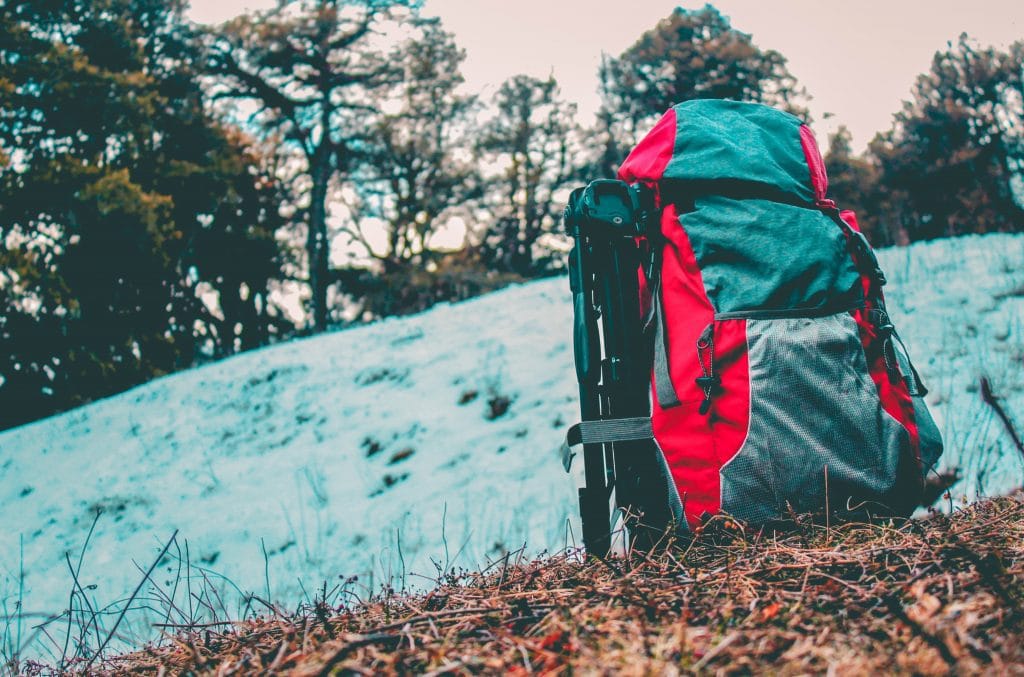
So this is the perfect list of equipment for successful hiking as a beginner. Don’t try to overpack. You will be suffered at the time hiking.
7. Telling Someone About Your Hiking
After finishing your primary preparation you should tell someone about your journey so that he can know where you are. Or you can check it out on social media when starting the journey. It is because of your safety. 127 hours of stories again happened that we don’t want.
8. Be Positive On Trail
At last, when you reach your destination, you should draw a positive attitude in your mind. Don’t fear. Walking like a happy guy. Breathe properly. Hiking is not a race. So don’t run just walk slowly.
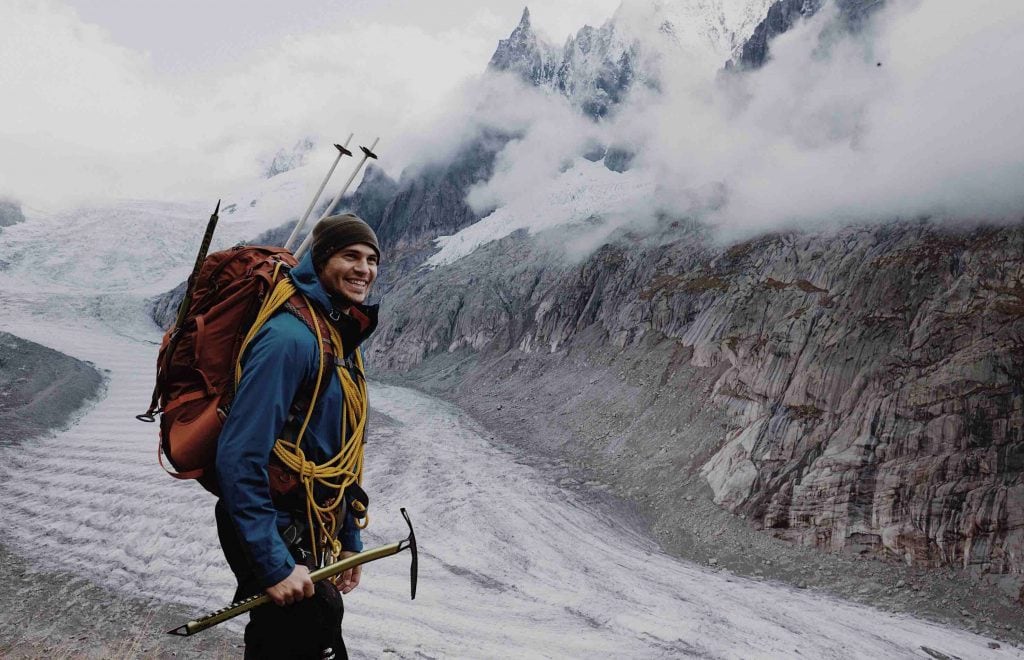
9. Walking Technique
There are some walking techniques that you need to follow on the trail.
For walking uphill these steps should be followed:
- Be peaceful
- Walk with regular footsteps
- Take a break to restore energy and control your heartbeat
For walking downhill:
- Tight up your bag
- Tie your shoe properly
- Use hiking or trekking poles
- Walk slowly at constant speed
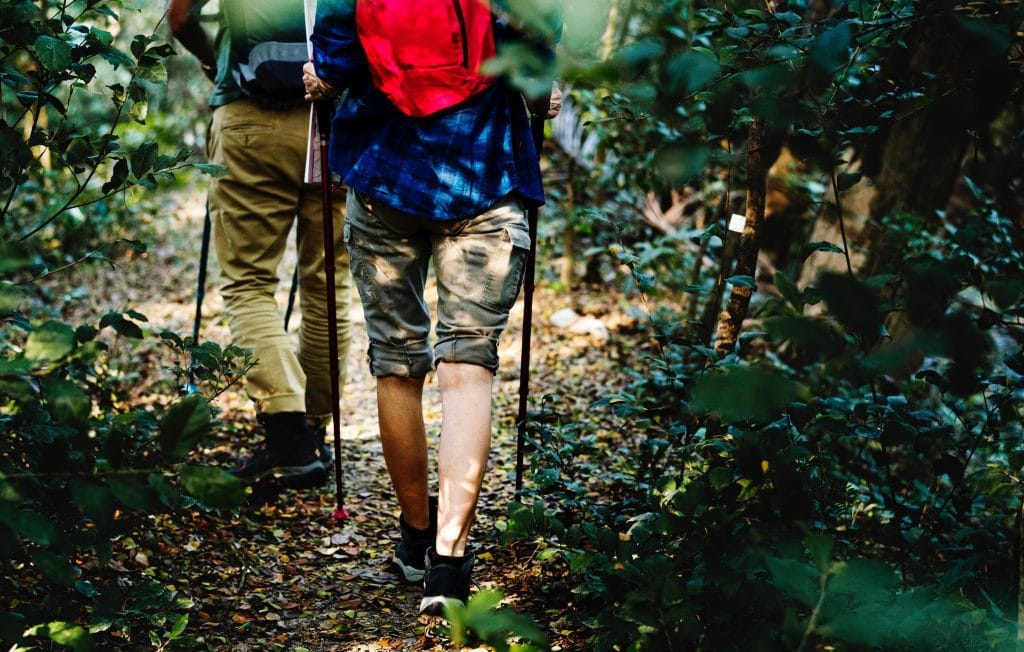
It is necessary to take a break during walking on the trail. And water is needed to refresh your journey.
10. Some Fear About Hiking
For people who want to hike or have already done it, there work some fear among them about hiking. As a beginner, it is normal to work with some fear. But really this is not actually so what you think.
- Fear of losing yourself on the trail
- Attack of wild animals
- Height of the trail
- Bathroom
- Out of network
Take those easy and it should be very normal. But you should aware of some facts.
- During Storm: A storm can happen at any time. So don’t fear it. Don’t stay close to any metals. Don’t run. Sit down in your bag and wait.
- Don’t feed the wild animals.
- Be careful of harmful insects.
- Keep emergency equipment.
11. Enjoy Your First Hiking
Enjoy your time by following these hiking tips for beginners. Breathing properly and walking with natural beauty. Be cool with wildlife. Explore the hiking adventure. Share your feelings with your partner. Capture your moment and natural beauty.
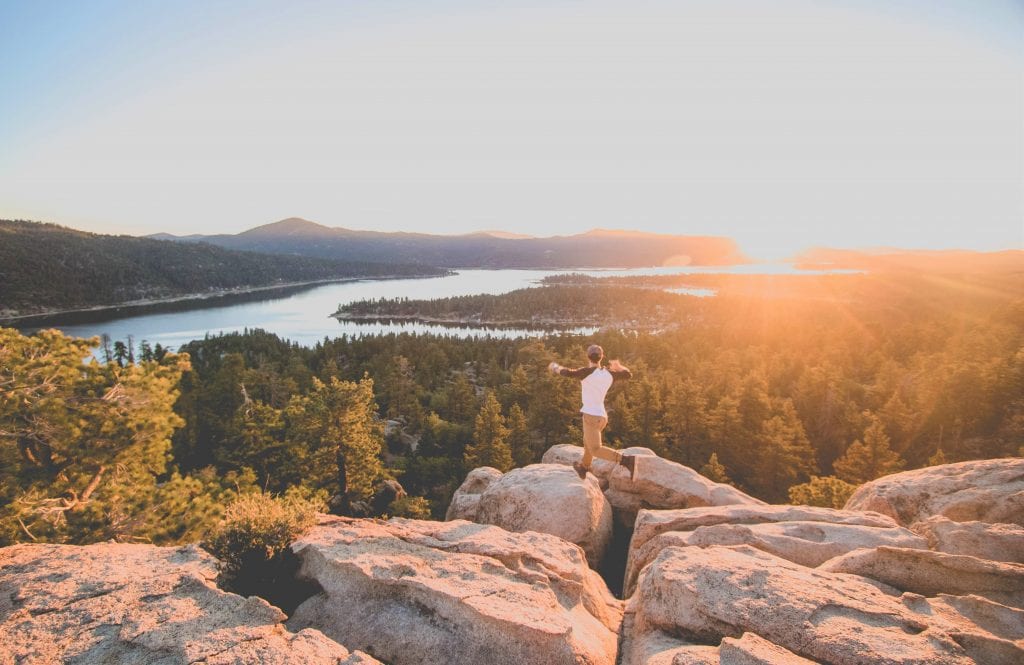
Pros and Cons of Hiking
You know, it’s a hard truth that hiking also has some disadvantages along with benefits. And it’s also tipped for a beginner to know about hiking pros and cons. So let’s unlock this term.
Pros:
1. Hiking is a good workout. It improves your strength, leg muscles, blood circulation, heart disease, and so on physical improvement.
2. The activity of hiking helps one to reduce weight.
3. Hiking journey can reduce one’s mental pressure.
4. Create a chance to feel nature and wildlife.
5. Have opportunities for many outdoor activities and meeting new people.
6. It increases the matter of stability and balance.
Cons:
1. Much safety should be maintained for this activity.
2. Physical damage can occur.
3. Quite cost affecting and there is a chance to be lost.
Final Words
Hiking is always full of thriller-like fishing, and camping. It needs some preparation. Anyone can go hiking. Hiking is not so expensive. This is a great workout also. The benefit of hiking is known to you. So if you thinking to make first hiking then these hiking tips for beginners will definitely help you to make your hike safe and fun. Get ready to immerse yourself in nature with a hiking adventure.
Question & Answers
What is the golden rule of hiking?
The golden rule of hiking is to “leave no trace.” This principle encourages hikers to minimize their impact on the environment by following a set of guidelines to protect the natural area they are visiting. The Leave No Trace Center for Outdoor Ethics, a national organization that promotes outdoor ethics, has 7 Leave No Trace principles:
- Plan ahead and prepare: Research the trail and weather conditions, and bring the necessary gear and supplies.
- Travel and camp on durable surfaces: Stick to designated trails and camp in designated camping areas to protect vegetation and wildlife.
- Dispose of waste properly: Pack out all trash, leftover food and litter, bury human waste at least 6-8 inches deep and at least 200 feet from water sources.
- Leave what you find: Leave natural and cultural features as you find them for others to enjoy.
- Minimize campfire impact: Use a lightweight stove for cooking and avoid building large fires.
- Respect wildlife: Observe wildlife from a distance and keep a safe distance, do not feed or approach them.
- Be considerate of other visitors: Yield to other hikers and keep noise levels down.
By following these principles, hikers can ensure that they are not causing harm to the environment and that they are preserving the wilderness for future generations to enjoy.
What should you not do while hiking?
Here are some things to avoid while hiking:
- Not following trail markers or signs: Stick to designated trails and obey trail markers and signs to avoid getting lost or causing damage to the environment.
- Not respecting wildlife: Observe wildlife from a distance and do not feed or approach them.
- Not being prepared: Make sure you are prepared for the hike by bringing necessary gear and supplies, such as adequate water, food, first-aid kit, and appropriate clothing.
- Not being aware of the weather: Check the forecast and be prepared for changes in weather.
- Not leaving no trace: Pack out all trash, leftover food, and litter, bury human waste at least 6-8 inches deep and at least 200 feet from water sources, and do not disturb or damage the natural environment.
- Not respecting other hikers: Yield to other hikers on the trail and keep noise levels down.
- Not paying attention to your physical limitations: Know your physical limitations and do not push yourself too hard. If you feel tired, take a break and rest.
- Not carrying enough water: Carry enough water and make sure you stay hydrated while hiking.
- Not letting others know your plans: It’s important to let someone know your hiking plans, including the trailhead, route and expected return time, in case of an emergency.
By following these guidelines, hikers can ensure a safe and enjoyable experience while minimizing their impact on the environment.
At what age should you stop hiking?
There is no specific age at which someone should stop hiking, as it ultimately depends on an individual’s physical ability and health. Many people continue to hike well into their golden years and are able to enjoy the benefits of hiking for their whole life.
As we age, our bodies may change and become less able to handle the physical demands of hiking, so it’s important to listen to your body and to adjust your hiking habits accordingly. This can include choosing easier trails, hiking with a partner, and carrying a fully stocked first-aid kit.
It’s also important to consult with a healthcare professional before starting a hiking program or making any significant changes to your physical activity, particularly if you have any underlying health conditions or concerns. Your healthcare professional can provide guidance on what types of activities are safe for you and how to adjust your hiking habits as you age.
In general, hiking can be a great way to stay active and maintain good health. With proper preparation and care, many people can continue to hike well into their later years.
Can you get fit just by hiking?
Hiking can be a great way to get fit and stay active. The physical benefits of hiking include:
- Cardiovascular fitness: Hiking requires physical exertion, which can help to improve cardiovascular fitness and increase endurance.
- Strength: Hiking uphill and over rocky terrain can help to build muscle strength and endurance in the legs, glutes, and core.
- Flexibility: Hiking can improve flexibility and range of motion in the legs, hips and spine.
- Weight control: Hiking burns calories and can help with weight control and weight loss.
- Mental health: Hiking can also have positive effects on mental health, reducing stress and anxiety, and improving mood.
However, just like with any physical activity, hiking alone may not be enough to achieve fitness goals, specially if weight loss or muscle gain is the main goal. A balanced diet and other forms of exercise may be necessary to achieve optimal health and fitness. It’s important to consult with a healthcare professional to determine what types of activities and exercise are safe and appropriate for you, and to develop a personalized fitness plan that takes into account your individual needs and goals.
Is hiking good for belly fat?
Hiking can be an effective way to burn calories and lose belly fat, along with other forms of physical activity and a balanced diet. When hiking, you are using multiple muscle groups, which increases your heart rate and burns calories. The more intense the hike, the more calories you burn. Additionally, hiking in hilly or mountainous terrain can also increase the intensity and help you burn more calories.
However, it’s important to note that spot reducing is not possible, meaning that you can’t target specific areas of your body to lose fat. To lose belly fat, you’ll need to create a calorie deficit by burning more calories than you consume. This means that in addition to hiking, you may need to make changes to your diet and include other forms of exercise to achieve your goals.
It’s also important to consult with a healthcare professional to determine what types of activities and exercise are safe and appropriate for you, and to develop a personalized fitness plan that takes into account your individual needs and goals.


